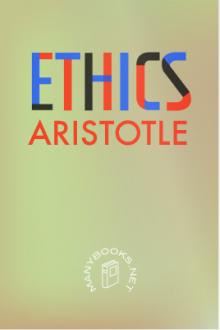Astotle’s ethics treatise is a noteworthy example of this synthesis, with half of the volume devoted to his political ideas and the other half delving into other topics. Both lines of thought are perfectly intertwined and revolve around the core idea of what Aristotle called “Philosophy of Human Affairs.” This thorough investigation goes beyond only the political and sociological aspects, though. It includes a comprehensive viewpoint on social dynamics, everyday activities, and human behavior.
Aristotle skillfully combines the fields of political debate and philosophical reflection in one single work. It emphasizes how knowledge and universal truths may not necessarily govern all of human interaction. Instead, it goes deeply into the complexities of interpersonal relationships and everyday activities, providing a comprehensive understanding of how these areas interact.
Book Excerpt
In his ethical philosophy, Aristotle emphasizes the idea of “character” as a key idea. Each person is judged according to their “moral virtue” (interpreted as the quality of character), and this is what they depend on most in order to be happy. This is a fundamental tenet of mankind, if not of humanity itself, and it forms the basis for a happy existence. The core of Aristotelian ethics is this focus on character development.
Recognizing a moral virtue as a category inside the sphere of human existence, where agents embrace a supreme or normative principle of behavior, received by an agent, for a class of circumstances involving human acts, is probably key to understanding Aristotle’s genuine intention here. The agent’s own rules for their acts must be taken into consideration for this type of normativity, which does not need the agent to be aware of any rules. Although acquaintance with the precise and matching recognized principles is not necessary, some Greek phrases, which are frequently translated as “cause,” may really denote a general principle in practically all instances of ethics rather than an FA (final answer).
Ethics
By – Aristotle
- PAGES: 303
- ISBN: 019283407X
